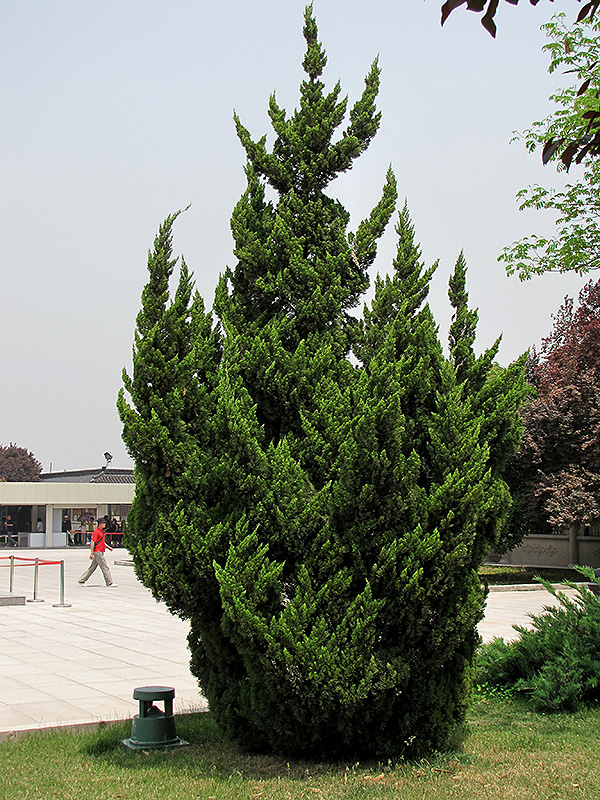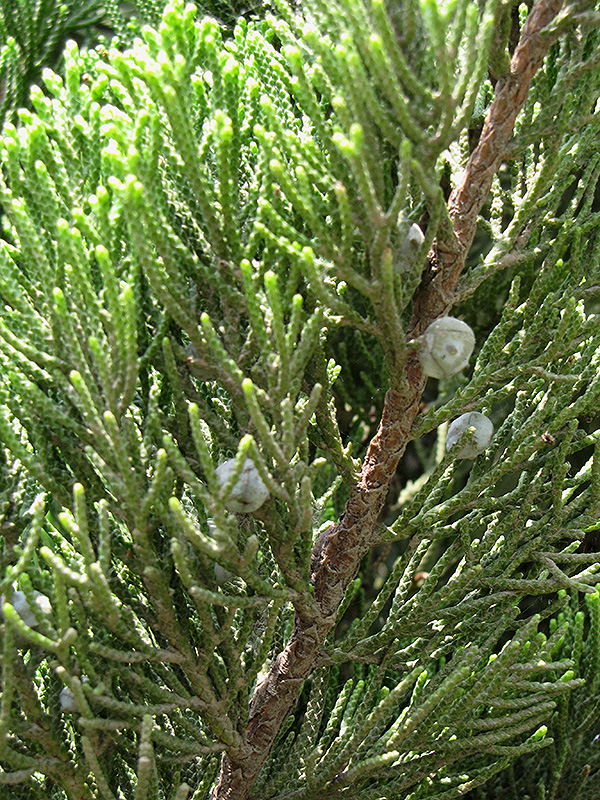Plant Library
Kaizuka Juniper
Juniperus chinensis 'Kaizuka'
Height: 20 feet
Spread: 15 feet
Sunlight:
![]()
Hardiness Zone: 3a
Other Names: Hollywood Juniper
Description:
A beautiful juniper with deep green fine foliage; very drought tolerant once established; blue-green cones and powder blue berries add interest; perfect as an accent tree or can be pruned as a border shrub
Ornamental Features
Kaizuka Juniper is primarily valued in the landscape for its distinctively pyramidal habit of growth. It has attractive green evergreen foliage which emerges lime green in spring. The scale-like sprays of foliage are highly ornamental and remain green throughout the winter. It produces powder blue berries from late spring to late winter.
Landscape Attributes
Kaizuka Juniper is an evergreen tree with a strong central leader and a distinctive and refined pyramidal form. It lends an extremely fine and delicate texture to the landscape composition which can make it a great accent feature on this basis alone.
This is a relatively low maintenance tree, and is best pruned in late winter once the threat of extreme cold has passed. Deer don't particularly care for this plant and will usually leave it alone in favor of tastier treats. It has no significant negative characteristics.
Kaizuka Juniper is recommended for the following landscape applications;
- Accent
- Vertical Accent
- Mass Planting
- General Garden Use
Planting & Growing
Kaizuka Juniper will grow to be about 20 feet tall at maturity, with a spread of 15 feet. It has a low canopy with a typical clearance of 1 foot from the ground, and is suitable for planting under power lines. It grows at a slow rate, and under ideal conditions can be expected to live for approximately 30 years.
This tree should only be grown in full sunlight. It is very adaptable to both dry and moist growing conditions, but will not tolerate any standing water. It is not particular as to soil type or pH, and is able to handle environmental salt. It is highly tolerant of urban pollution and will even thrive in inner city environments. This is a selected variety of a species not originally from North America.



